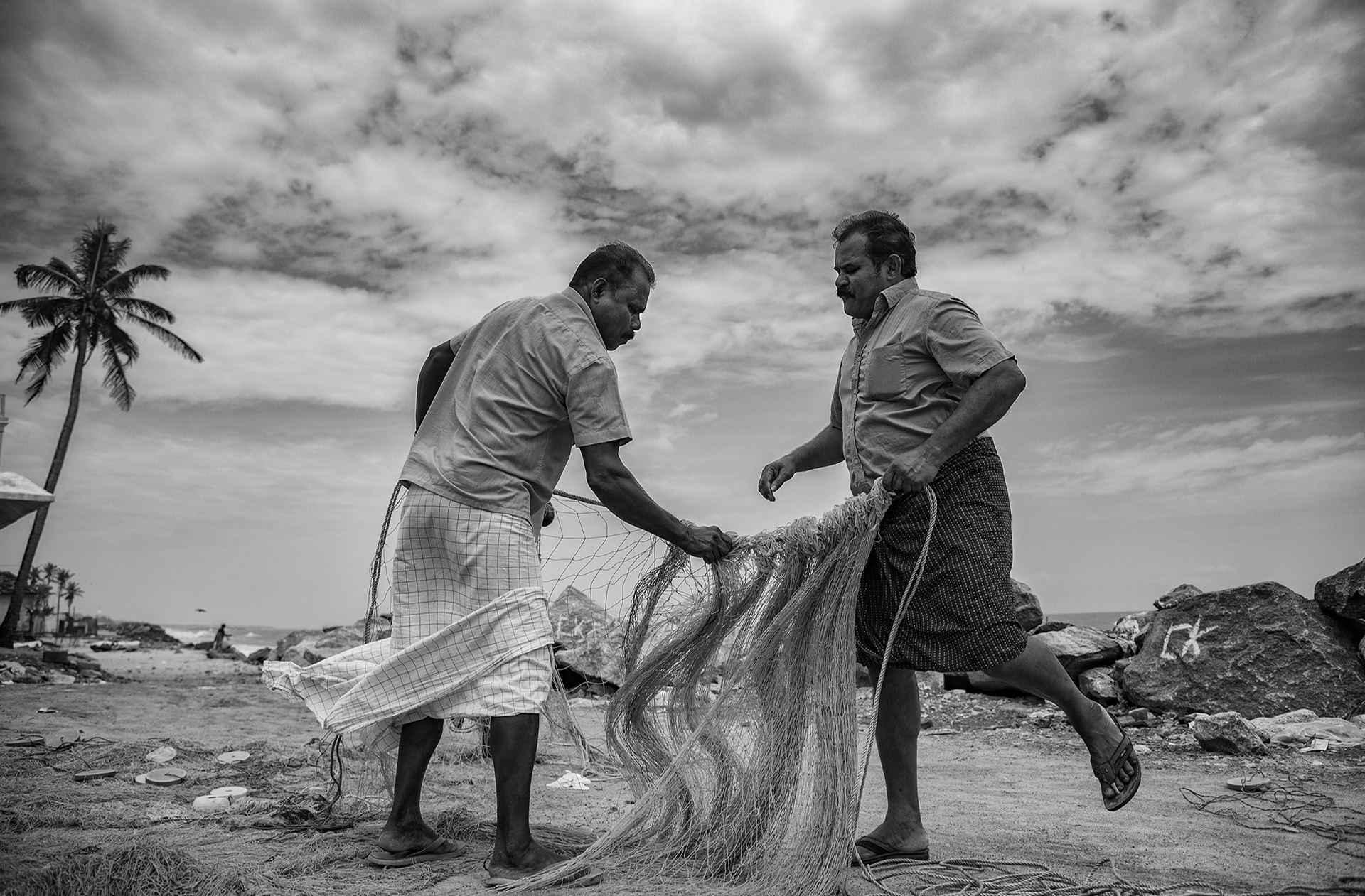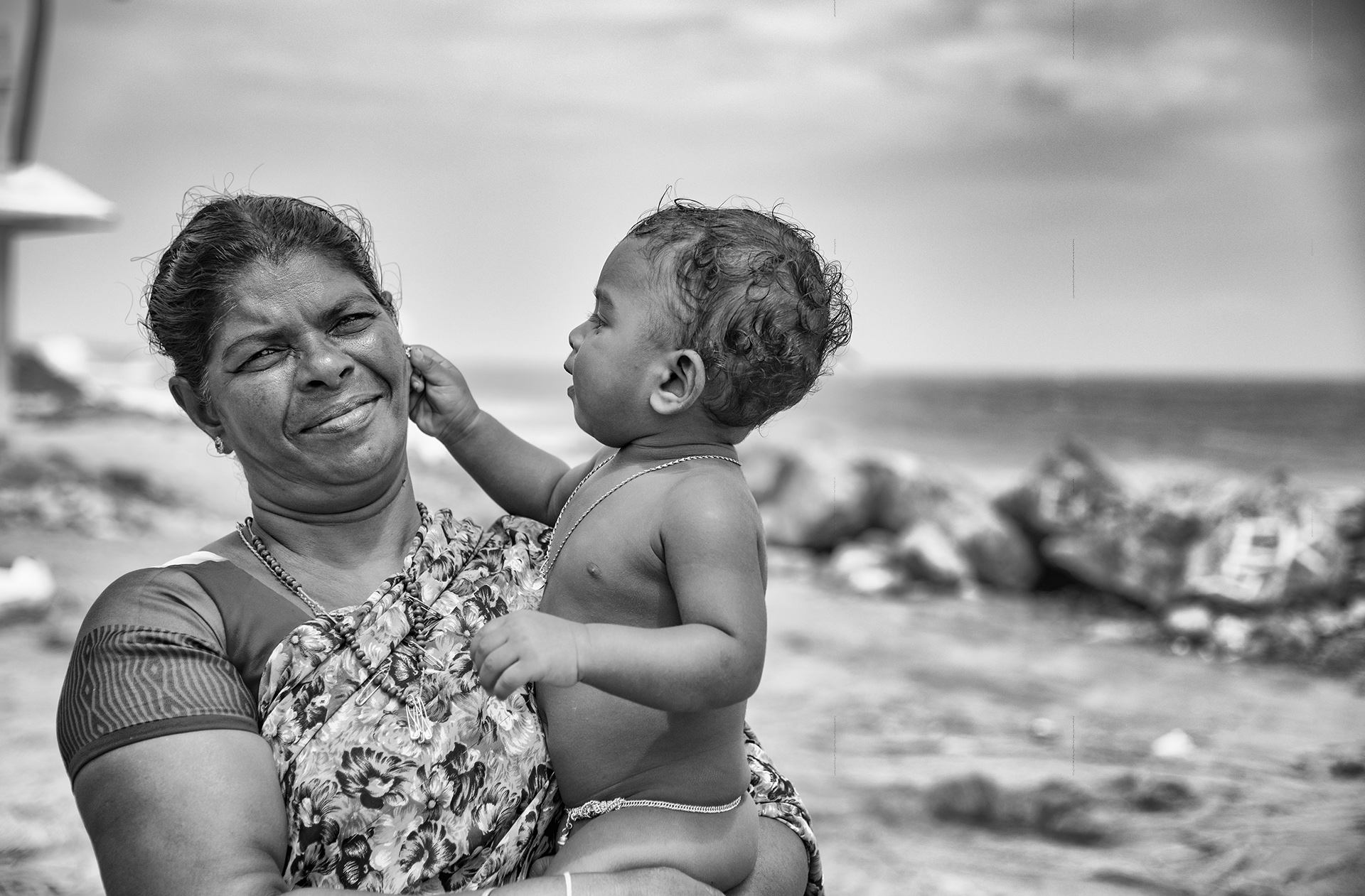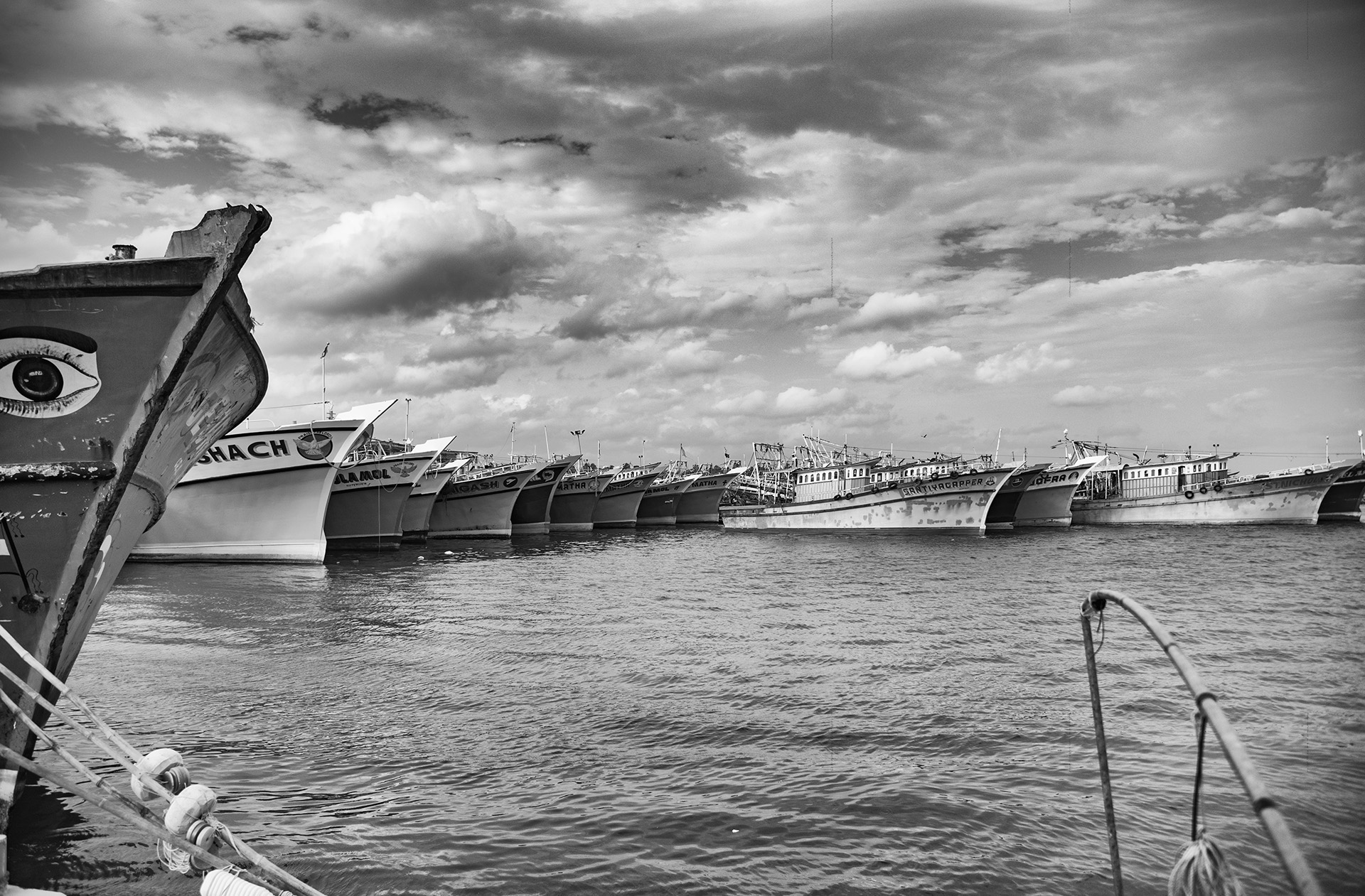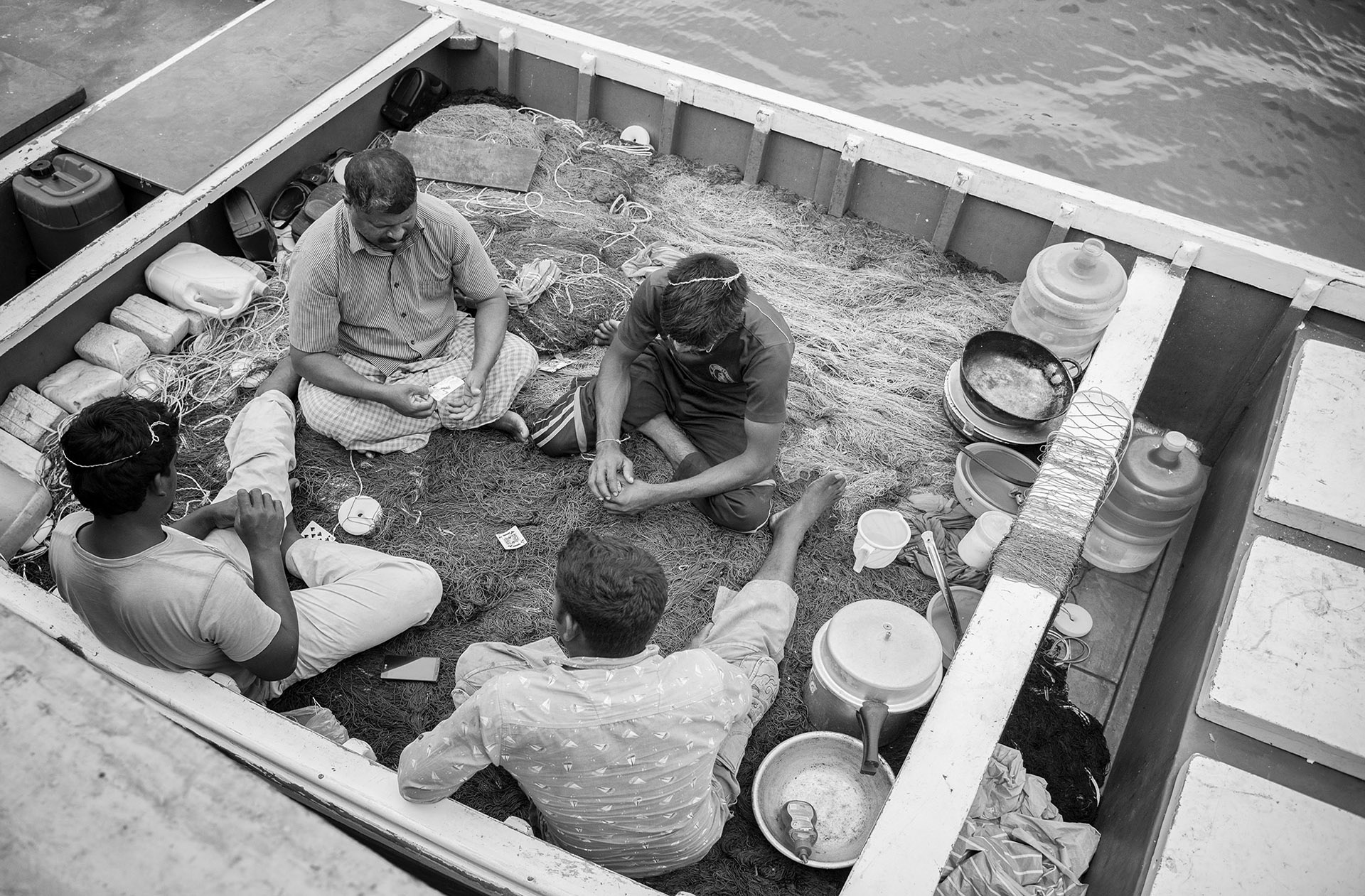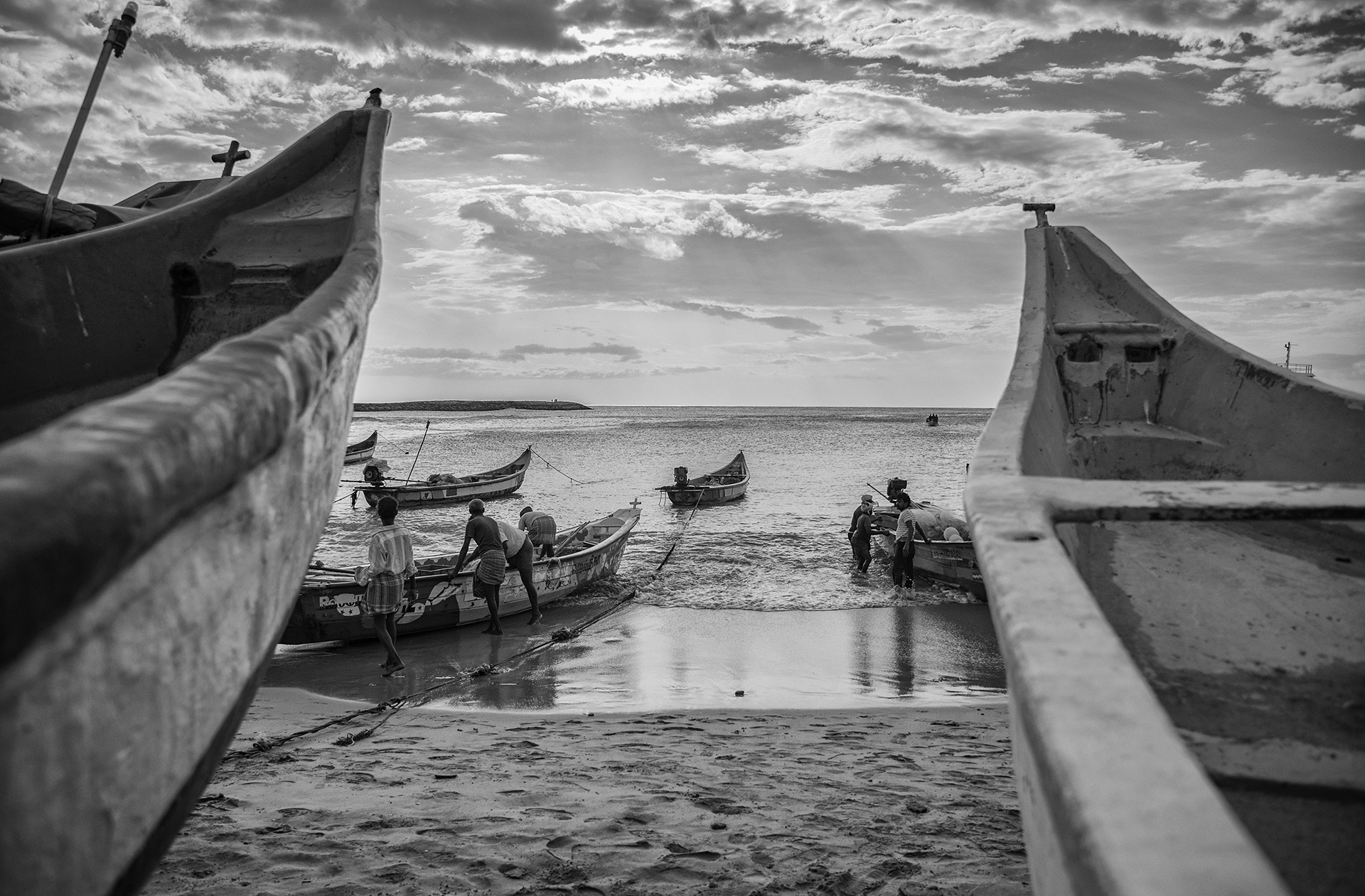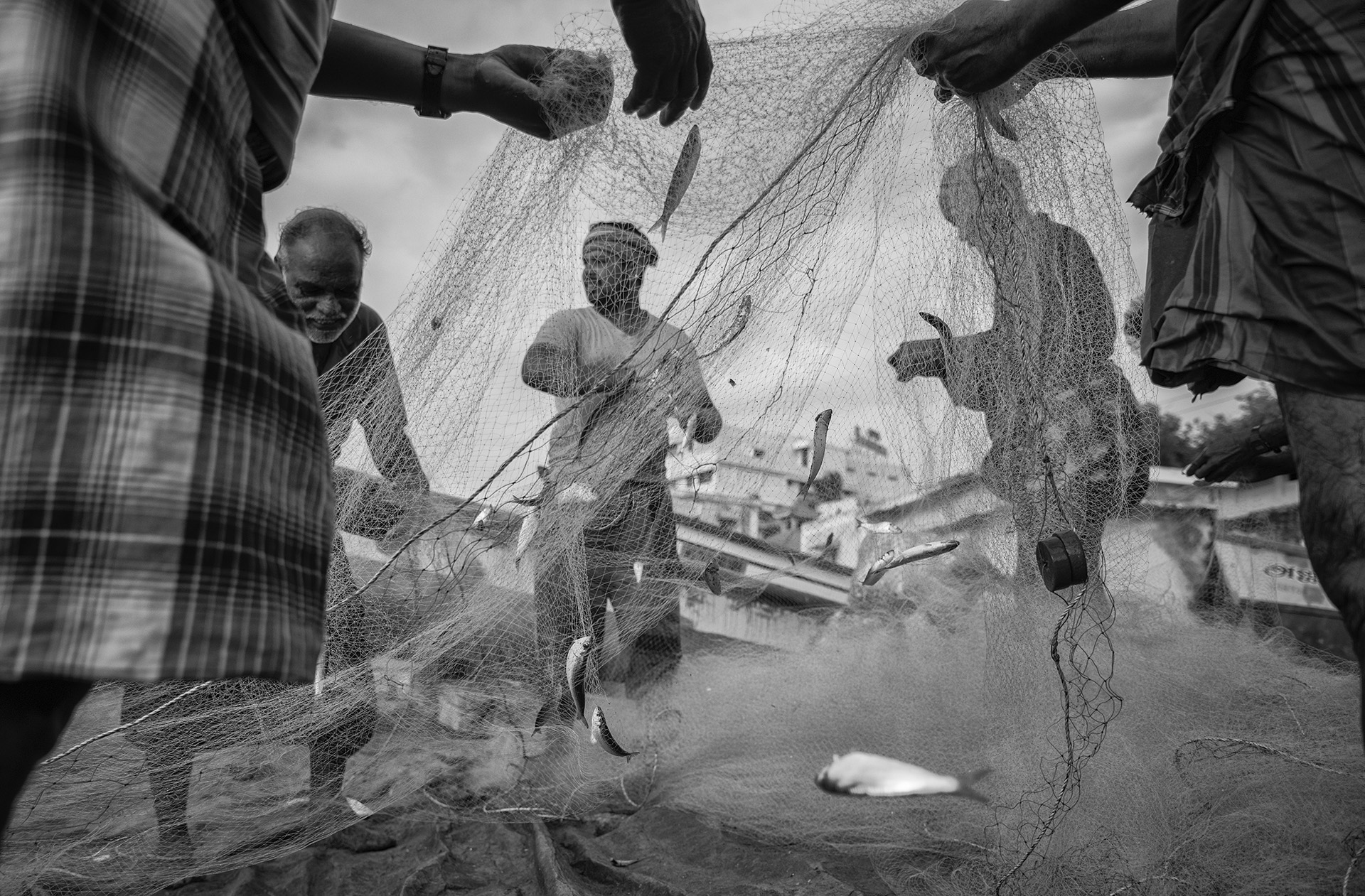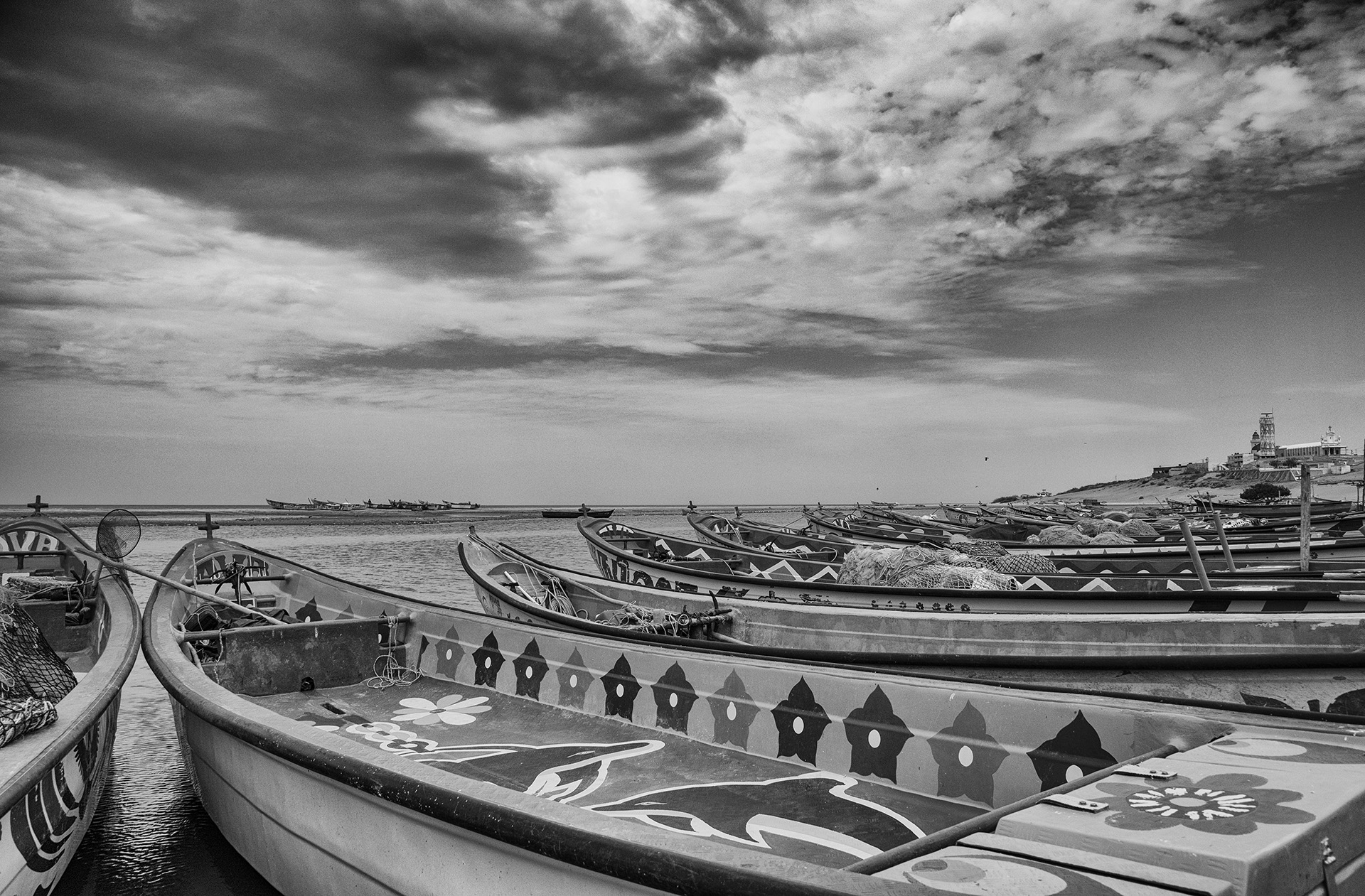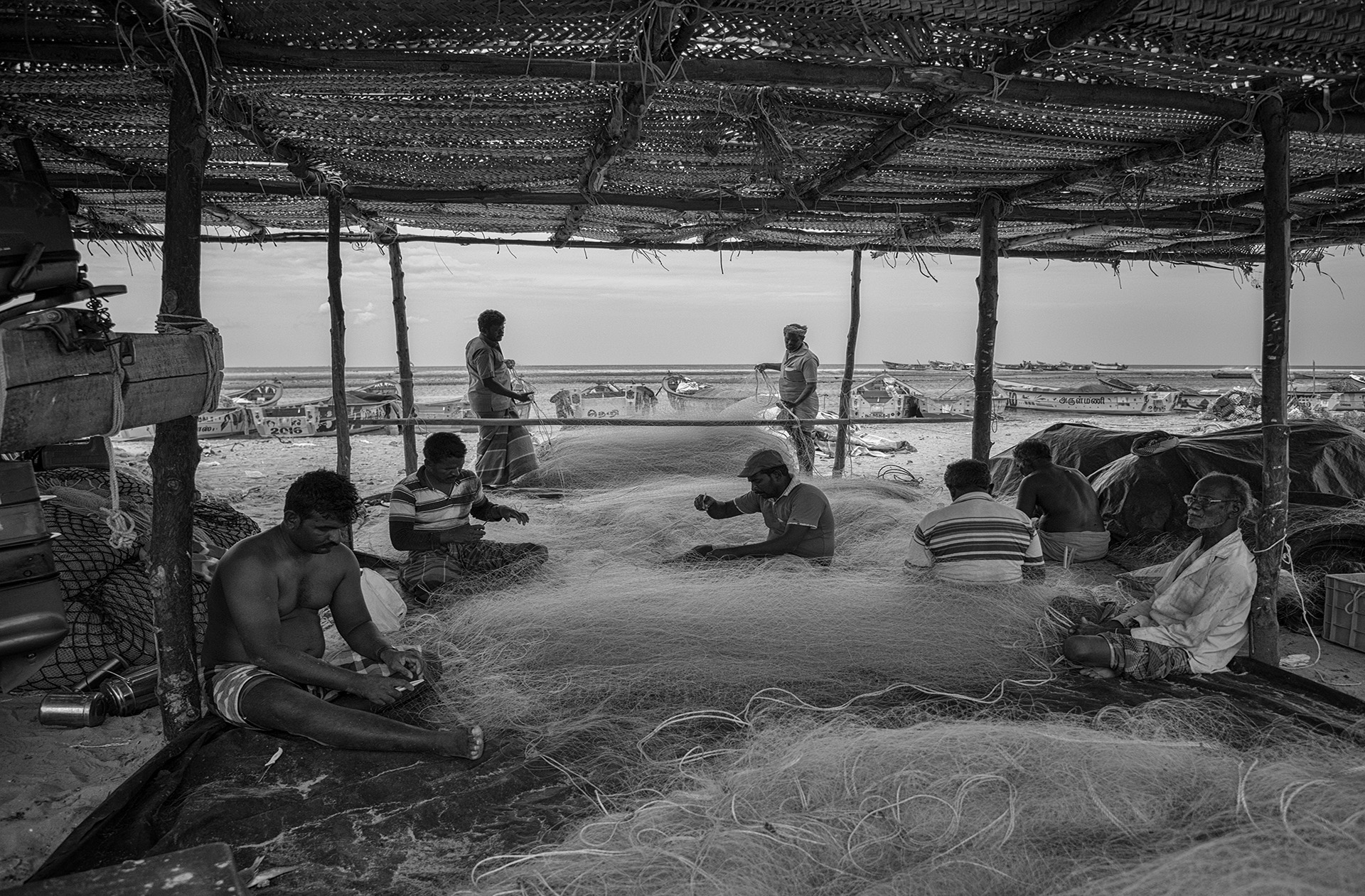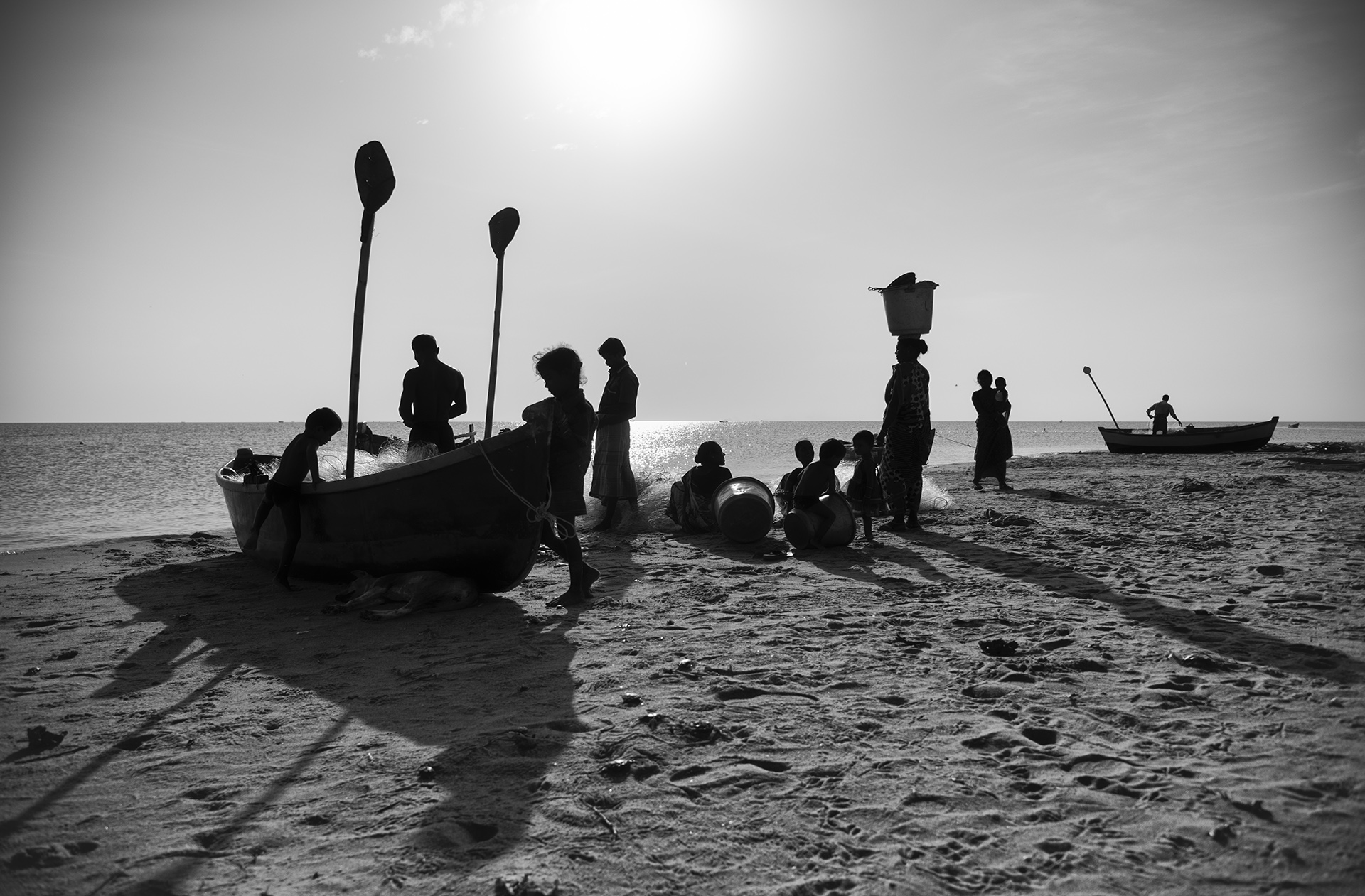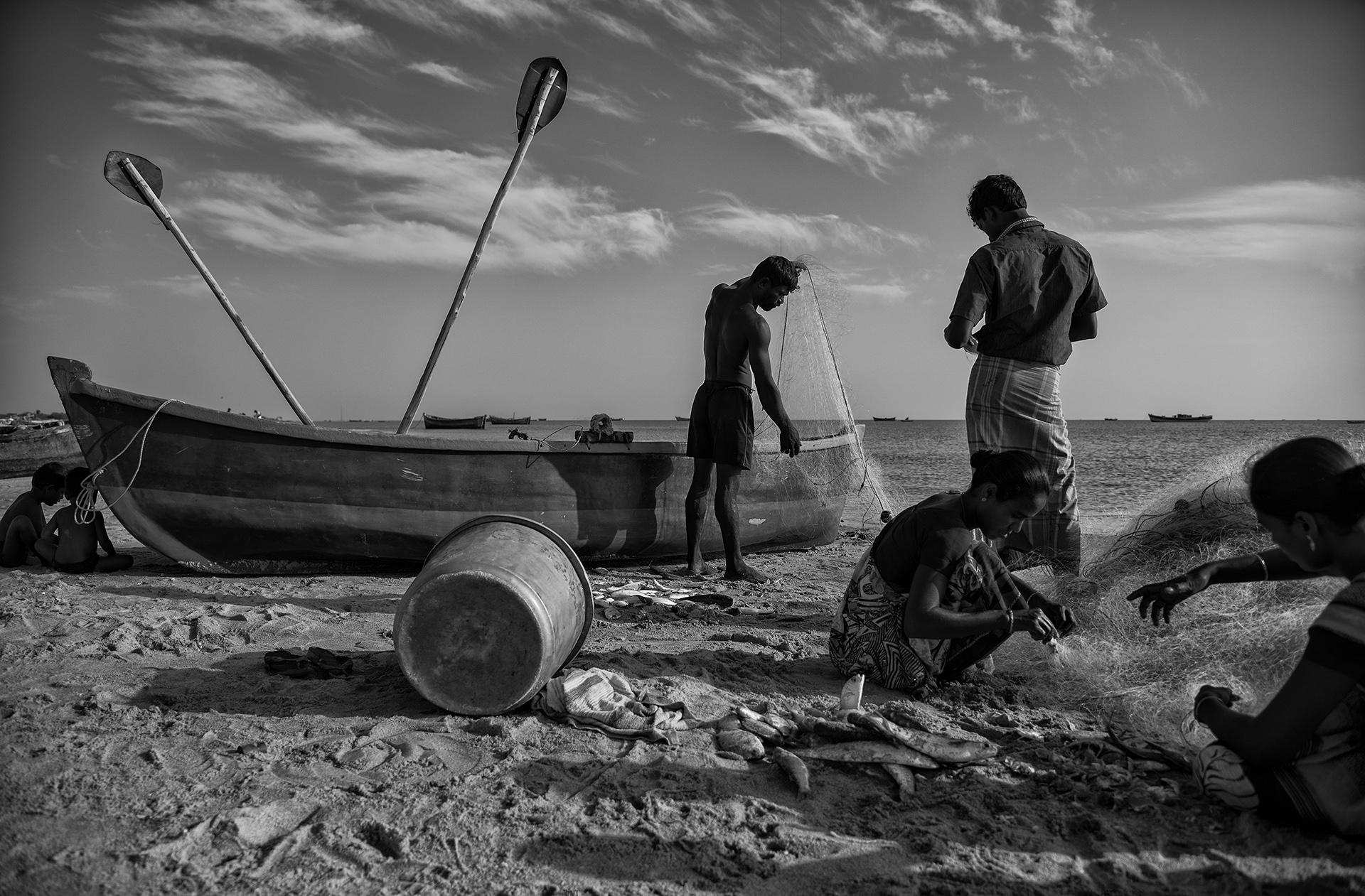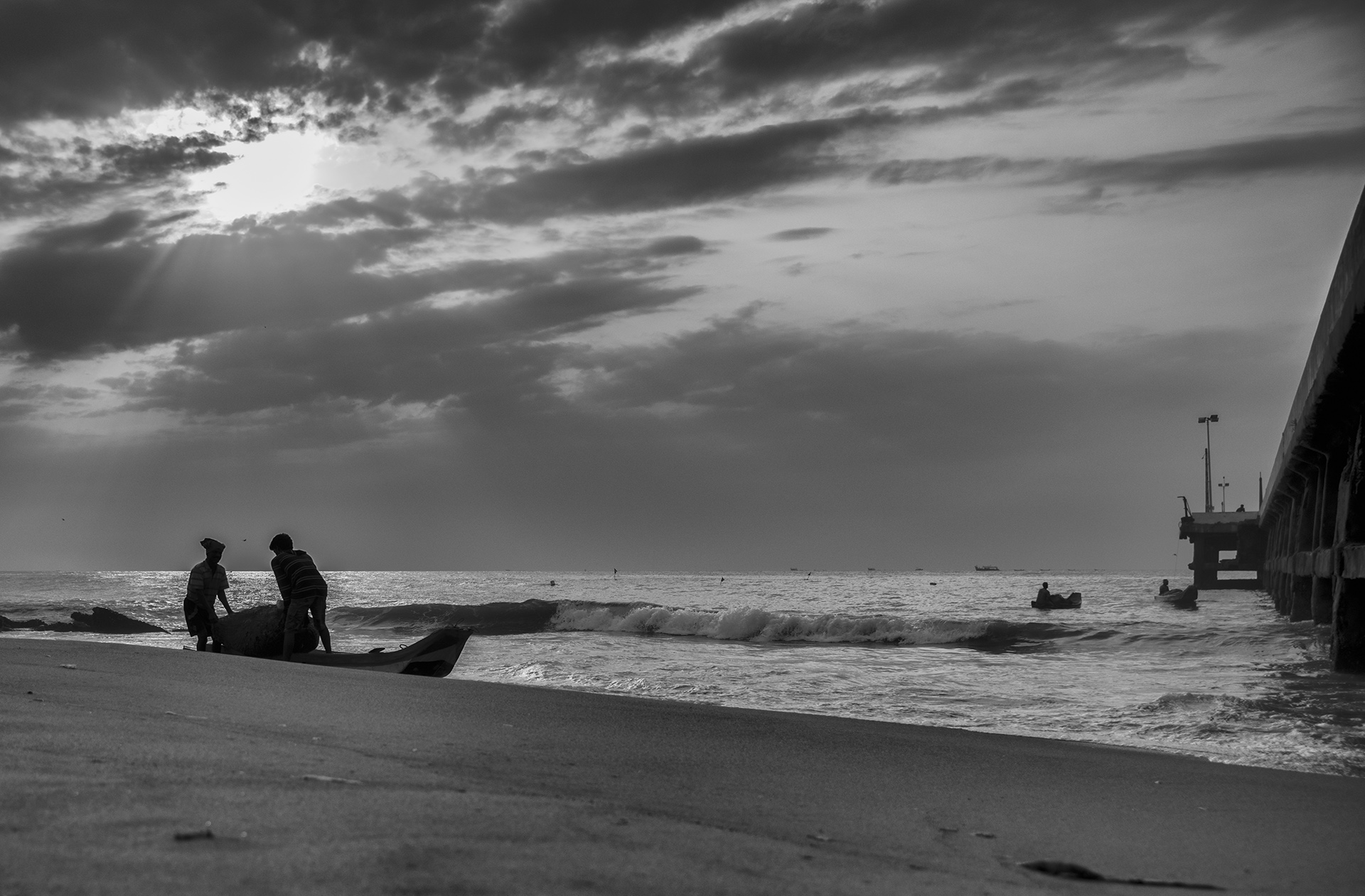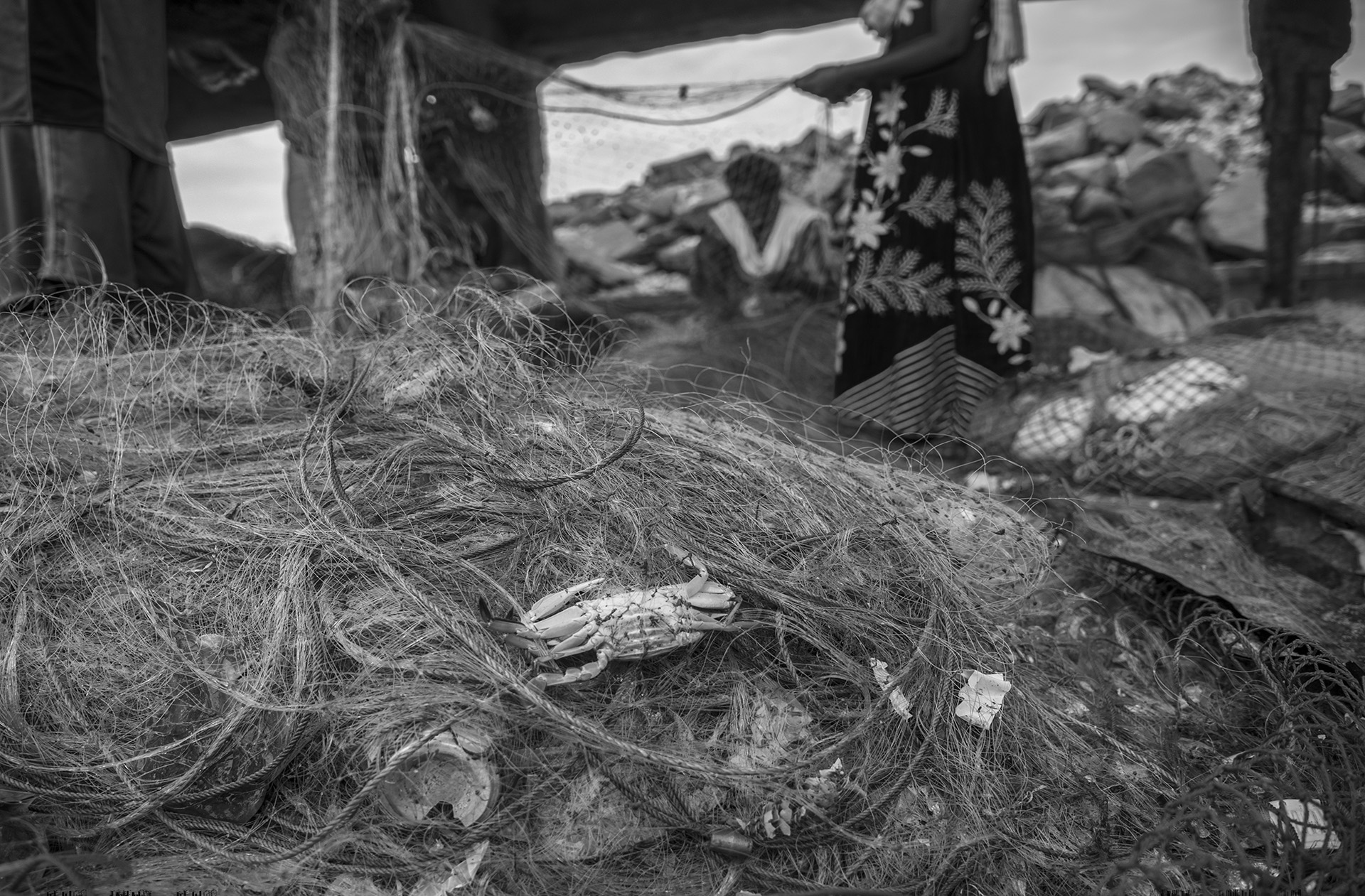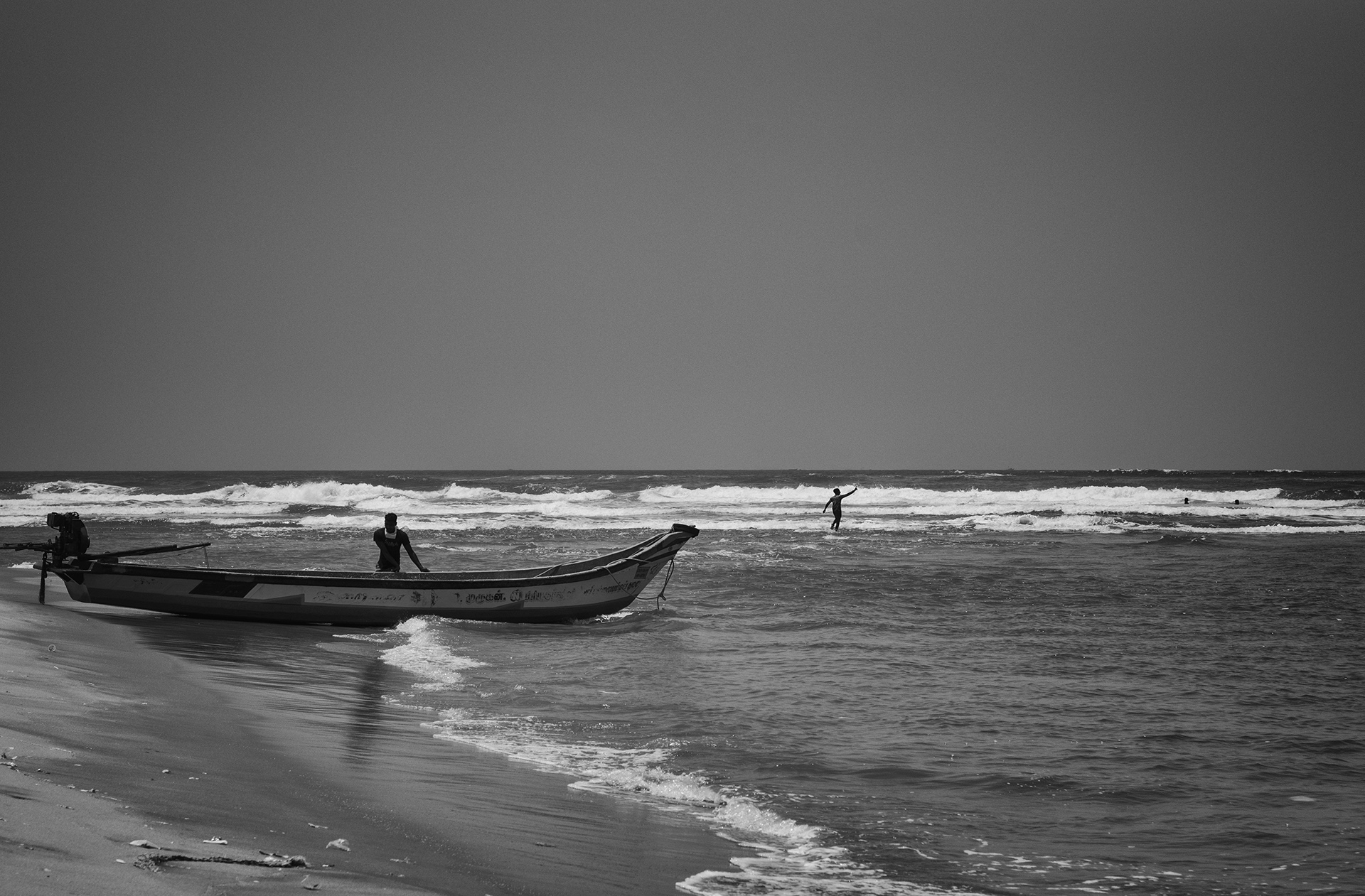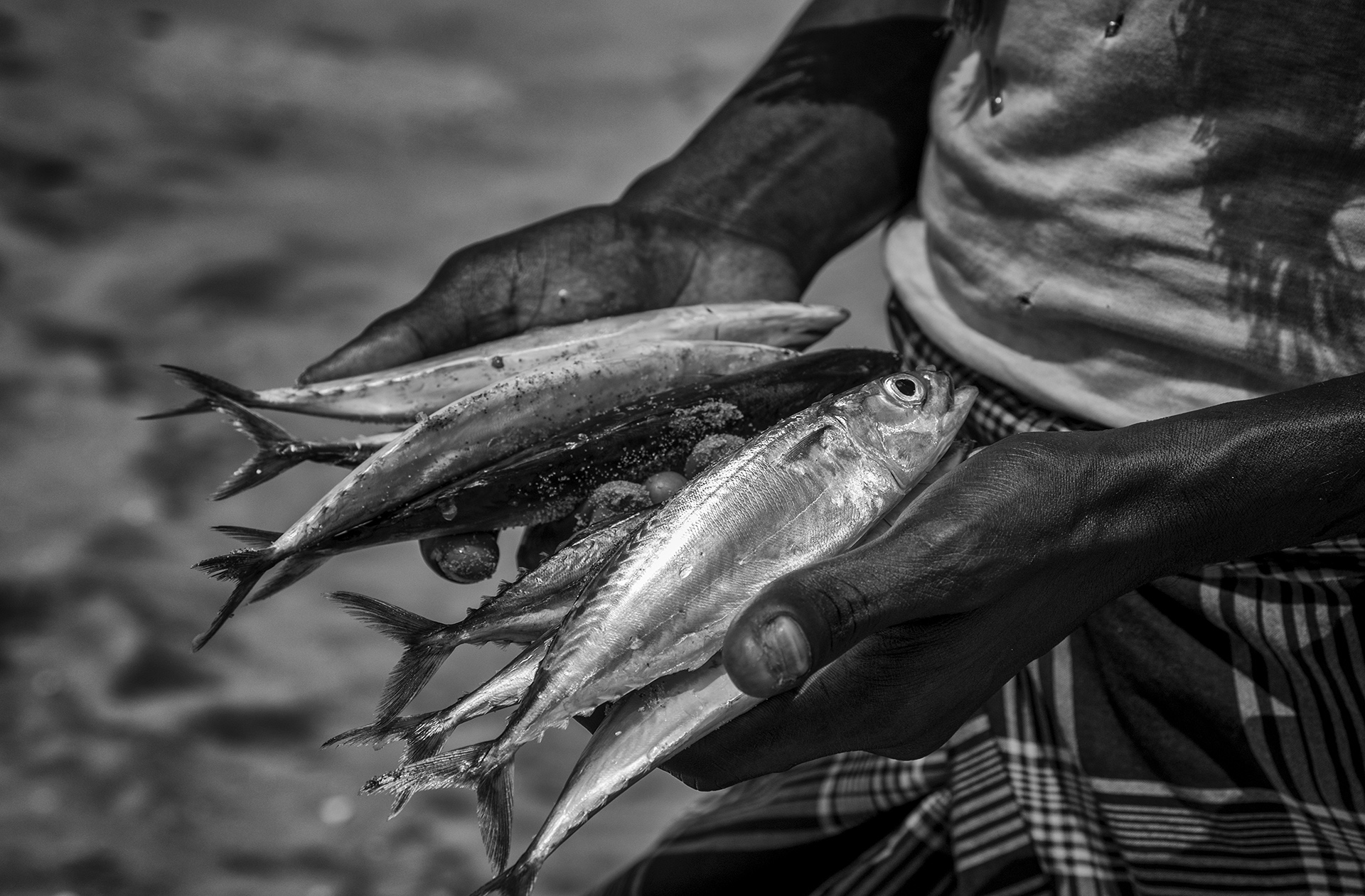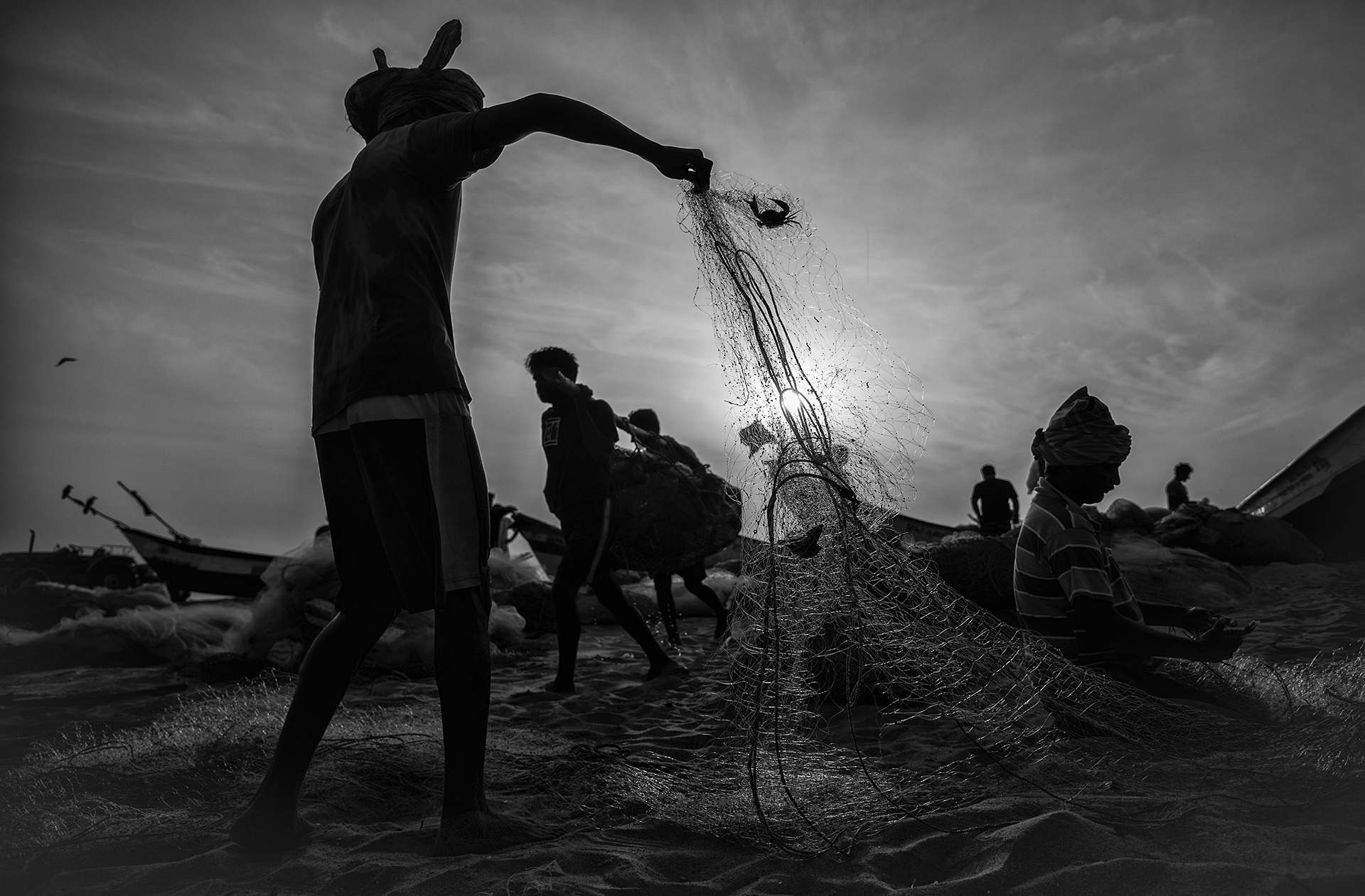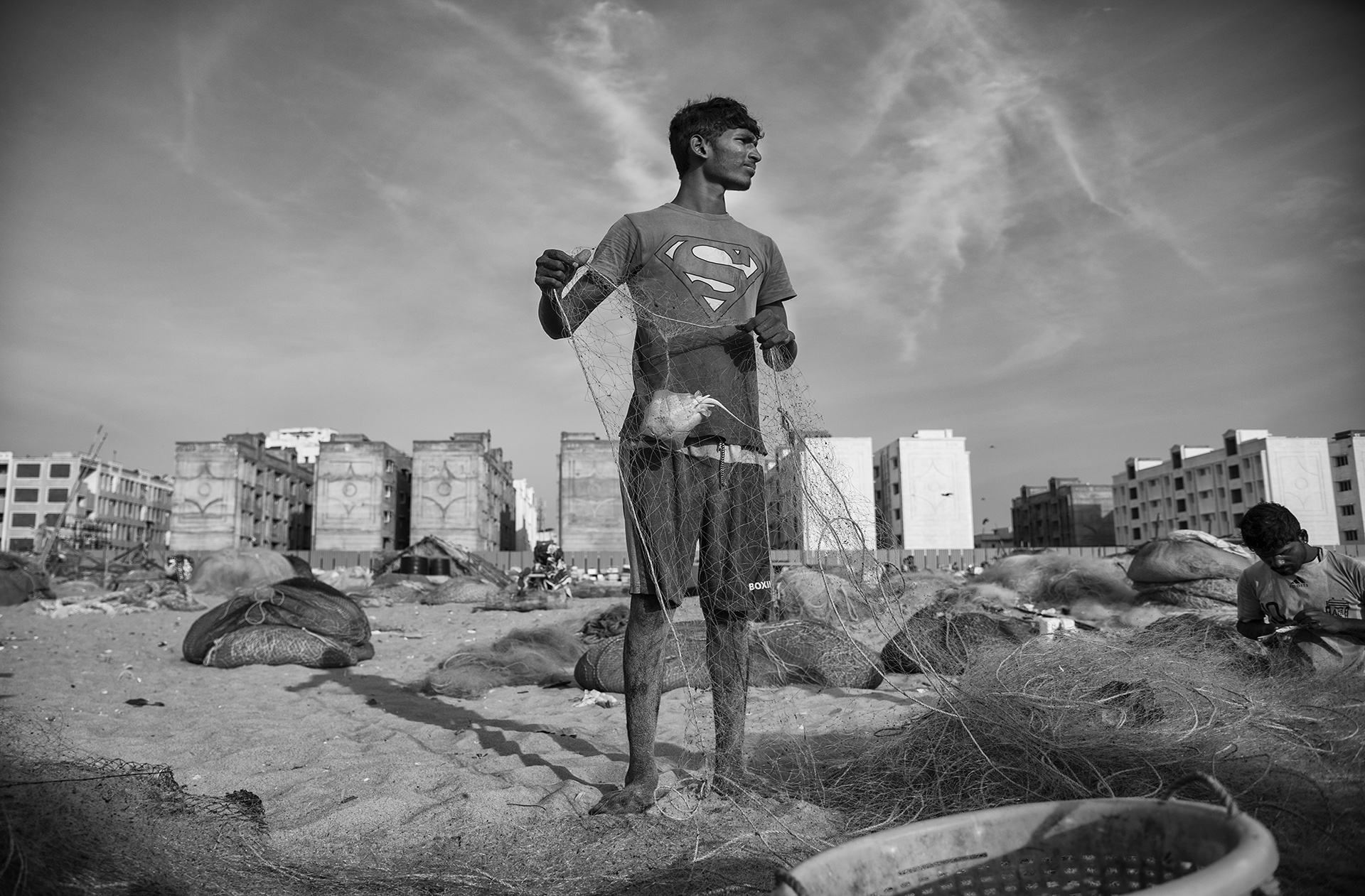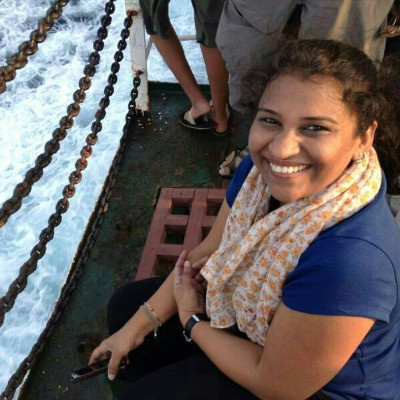The sea, the great unifier, is man's only hope. Now, as never before, the old phrase has a literal meaning: we are all in the same boat.
-- Jacques Cousteau
At the peak of monsoon, I go on a journey along coastal Tamil Nadu, on a SeaLegacy expedition with a fellow photographer, Cristina Mittermeier, and a film maker, Jenny Nichols. Of the nearly 1,000 kilometers we travel, a significant part of the drive is through State Highway 49, also known as the East Coast Road (ECR), a 800-km-long stretch that extends from Kanyakumari to Chennai. It hugs the coast, crisscrossing through fishing hamlets, salt pans, port towns and naval cities, but never loses sight of the sea for long.
The Government of India imposes a ban on fishing during June for the west coast and July for the east. The only rain we are met with, however, is a brief spell in Kanyakumari, but the effects of monsoon are everywhere: docked boats on choppy waters, groups of men lounging around villages or huddled over nets that need repairs. At every stop, we could swap names, jumble up places, exchange boats and switch nets; and yet these stories would adhere to the same pattern. People along the coast go through much the same conflicts. Their temperament matches that of the sea. It is their provider; yet every moment they spend out in the sea is a gamble.
Thoothoor
The rocky shores of Thoothoor face the Arabian Sea, into which local, artisanal fishermen venture far and deep every day. The annual fishing ban lasts through July, a quiet month during which these fishermen tend to their nets and mend their boats. They are united by the Association of Deep Sea Going Artisanal Fishermen, which keeps the community together through guidance and governance. "Trawlers that scour the ocean floor force the fishermen to go into the farthest stretches of the sea", says Vincent Jain, who heads the Association. “The fishing methods that trawlers employ are unsustainable and are emptying our seas.” Do the fishermen earn anything at all during the ban? “The government gives them ₹3,000 a month, irrespective of the size of their families, but only if they are registered,” he says. Others find temporary jobs in the town to support their families till they can go out to sea.
Wandering around the fishing hamlet, we run into Selvendram and her grandnephew Rabi. Selvendram lost her husband at sea; his heart failed on a fishing expedition. Her only daughter is married and lives in Chennai; her other relatives live around her and form her support system. We see and hear of stories of gender preferences in children from people of all classes of society, but this is where the absence of a male child hits hard. Fishing communities are usually powered by men, so much so, in some places, it is considered unlucky for women to be in the boat. Every morning, Selvendram heads to the beach with the rest of the village women, but with no boat or husband or son to look out for, makes a meager living out of selling other men’s fish.
Muttom
A long line of trawlers is reflected on the still sea waters. The sound of a drill punctures the silence; elsewhere, an engine coughs and dies. The sounds of hammering and tinkering continue, men playing rummy on a boat banter and argue, while a cheer erupts from the dock as a man hauls out a skinny little fish dangling from the end of a wire tied to a long wooden pole. The usually busy Jeppiaar Fishing Harbour in Muttom is on detox mode. Only small boats are allowed to go out to sea during the annual monsoon ban, trawlers have to take a 30-day vacation. "We are waiting for August 1," a fisherman says, peeping out of the engine room, an electric cable in hand. "Once the clock strikes 12, we will be out of here."
Kanyakumari
The waters of Kanyakumari (at the southernmost tip of mainland India) are unique. Here, the Arabian Sea meets the Indian Ocean meets the Bay of Bengal. On a little stretch of the beach in the middle of a tourist area that attracts sunrise-watchers, fishermen haul in small motorboats loaded with the morning’s catch. A push on one end, a drag on the other, with a series of grunts to acknowledge that each man is doing his bit. The sea is very choppy, and the catch is poor this time of the year. Most of the catch is reef fish from shallow waters. Two boats have returned with lots of inedible jellyfish trapped in their nets. One net has a sea snake, and going by the speed at which it is killed and tossed into the water, it is probably venomous. All the nets contain baby skates and rays, not big enough to make a lucrative sale. The fishermen can't wait for the season to change.
Manapad
St Francis Xavier arrived at Manapad in the 16th century during his missionary work on the coast. The Holy Cross Church (located on the top of a cliff facing the sea) was built then and continues to be a popular destination for pilgrims. Water inlets from the sea cut across vast stretches of white sandy beaches, and colourful little boats are docked everywhere. Like in other coastal villages, fishermen sit in the shade and tend to their nets, while heaps of dry fish and seaweed lie entangled in them. The annual fishing ban is over in these parts, but this is not the right season. The boats are small, the waves are huge, the sea is choppy, and there are no fish.
Dhanushkodi
The ‘ghost town’, Dhanushkodi (which means end of the bow), lies less than 18 miles away from Sri Lanka, at the tip of Pamban Island. We are literally at the land's end. In the Hindu epic Ramayana, Dhanushkodi is where Lord Rama used the end of his bow to mark the spot where the bridge to Lanka would be built. However, the town is not as empty as its moniker implies. The main street of the town is mostly covered in sand. Shacks on either side of the street cater to tourists and a railway track leads to the railway station that was destroyed in a cyclone in 1964. Several boats containing the morning’s catch land at the beach overlooking a calm Laccadive Sea and the Gulf of Mannar Marine National Park.
People mill about two paddleboats docked together; the men on each boat sort the nets and the women gather fish while older children take care of the younger ones. It turns out that both families are related. A woman walking towards the market with a bucket full of fish stops by to check on them; she is related to them too. About 300 families live here, she tells us. The catch that the men bring in is sorted and sold to an intermediary vendor for a meager ₹30 per kilo. “We don’t earn much,” she says. “It’s a lot of hard work for very little money.”
I can't help but wonder, where does the fish go from here? How far inland? Or to another country? Is it even possible to calculate fish miles?
Puducherry
A quiet corner a few hundred meters away from the bustling beach near White Town slowly comes to life as the sun rises. Fishermen emerge from the nearby hamlet with their nets and drag docked paddleboats towards the sea. One after another, like on a busy runway, boats go in and come back. In a tense moment, one fisherman almost crashes his boat into the pillar of the quay as he runs out to the sea, while another boat topples over, thanks to a huge wave. Those watching from the shore swim out and manage to save the net loaded with catch.
The full, heavy nets look very promising as they are unloaded from the little boats, only it is not just catch in the nets. For every fish caught, two plastic cups make it into the net, for every crab, a few plastic packets, and for every ray, even more plastic forks and spoons. Puducherry is part of a more populous tourist circuit, and clearly attracts as much garbage as people. We watch as the fishermen laboriously sort out their catch, a small heap of fish, crabs and lobsters on one side and a big heap of plastic on the other. “It’s as if we are cleaning up the sea with our nets,” one man laments, “but there seems to be no end to this.”
Alamparai
A thriving port in the 18th century when the land was ruled by the Mughals and the French, Alamparai is a shadow of its former self. A fort constructed by the Nawabs back then was later destroyed when the French lost to the British. However, the beautiful sandbanks still exist. They are covered in pellets of sand, a giveaway to the presence of Sand Bubbler crabs.
Huge, frothy waves lash at the sandbank as the tide comes in. In the distance, fishermen wade into the water, looking for things on the seabed. Two of them try to hold on to an upside down boat that sways wildly each time a large wave swells. “It’s always risky to go out fishing at this time of the year,” our boatman tells us. “These small boats capsize easily.” The only things the two fishermen are able to salvage are a lunchbox and a handful of baby tuna. They’d had a good turn at sea that day and yet lost both the catch and the net. Somewhere in the sea, there is a net full of fish, perhaps dead.
Chennai
"I will represent India in the Olympics someday," says Ranjith Kumar, a 17-year-old Economics student at Loyola College and an amateur boxer in the 56-kilo category. As he carefully separates the pincer of a mud crab from the net, his father reprimands him. “If you keep cutting the legs off, I’ll be forced to reduce prices!" "I won a bronze medal for my state this year, because my father supported me and took me to Delhi to the boxing championship," says Ranjith. “I am on YouTube, search for boxer Ranjith Kumar!”
His older sister graduated with a gold medal in Mathematics. She is married now and has not pursued a career. There are many graduates here in the fishing community at Nochi Kuppam, Ranjith informs us. All his friends either work in the city or go to college. Does he go out fishing often? "Just on weekends; I like to go out with my dad. I grew up on this beach here, this is my home."

